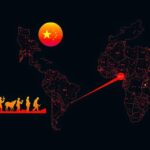Repatriation of South African Freedom Fighters’ Remains from Exile
The remains of 42 South African freedom fighters who died in exile were repatriated from Zimbabwe and Zambia to South Africa on Wednesday. This initiative aims to provide closure to their families as they were laid to rest in their homeland. The effort underscores the sacrifices made during the anti-apartheid struggle and is part of a larger government project to preserve the legacy of freedom fighters. President Cyril Ramaphosa is expected to host a ceremonial event for the remains before family burial arrangements.
On Wednesday, the souls of 42 South African freedom fighters, who perished in exile in Zimbabwe and Zambia during the anti-apartheid struggle, were returned to their homeland. The repatriation ceremony took place at the Waterkloof Air Force Base in Pretoria, where government officials and family members gathered to honor these heroes after their remains were exhumed for dignified reburial. This initiative is part of a broader government strategy aimed at providing closure to the families whose loved ones fought against the oppressive regime abroad while serving with the African National Congress and the Pan Africanist Congress. Prior to the end of apartheid in South Africa in 1994, a significant number of activists fled the country to seek military training and to evade potential arrest by the apartheid authorities. The majority sought refuge in Southern Africa, particularly in Zimbabwe and Zambia, where anti-apartheid movements were strong, and the African National Congress had relocated its headquarters to Lusaka after being banned in South Africa. Tragically, many of these activists lost their lives during the struggle and were interred in foreign lands. Among those whose remains were repatriated this week were notable figures such as Duma Nokwe, Florence Mophosho, and Basil February. During a Heritage Day event held on Tuesday, South Africa’s Deputy President, Paul Mashatile, remarked that the repatriation serves as a vital part of an initiative that endeavours to teach future generations about the struggles endured by many in their pursuit for freedom. “As a national memory project, this initiative aims to commemorate, celebrate, educate, promote, preserve, conserve, and provide a durable testament to South Africa’s road to freedom.” On Friday, President Cyril Ramaphosa will preside over a ceremonial event in honor of the repatriated fighters before their remains are handed over to their families for interments in various locations across South Africa. Furthermore, the government has announced plans to continue repatriating the remains of South Africans from locations including Lesotho, Ethiopia, and Russia among others. Deputy Defense Minister Bantu Holomisa expressed hope that these efforts would ultimately allow for the return of more individuals who faced untimely deaths under harsh circumstances, thus reconnecting them with their families. This significant repatriation serves as a powerful reminder of the sacrifices made in the fight against injustice, fostering collective remembrance within the nation.
The repatriation of the remains of South African freedom fighters is a significant act of reconciliation and recognition of the sacrifices made during the anti-apartheid struggle. Many activists sought refuge in neighboring countries such as Zimbabwe and Zambia, where they received military training and participated in underground movements against the apartheid regime. This repatriation not only provides closure for the families but also serves a broader purpose of educating future generations about prior struggles for liberty and democracy within South Africa. The government’s initiative includes the commemoration of past heroes who fought valiantly for an end to oppression, thus preserving their legacies.
The return of the remains of these 42 South African freedom fighters marks an essential step in acknowledging and honoring the sacrifices made in the fight against apartheid. This historical event is significant not only for the bereaved families but also serves as an educational opportunity for future generations to understand their nation’s complex history and the heroism involved in the struggle for freedom. Through such repatriation efforts, the South African government is making strides towards healing and honoring the contributions of those who fought against injustice.
Original Source: www.newsday.com







Post Comment